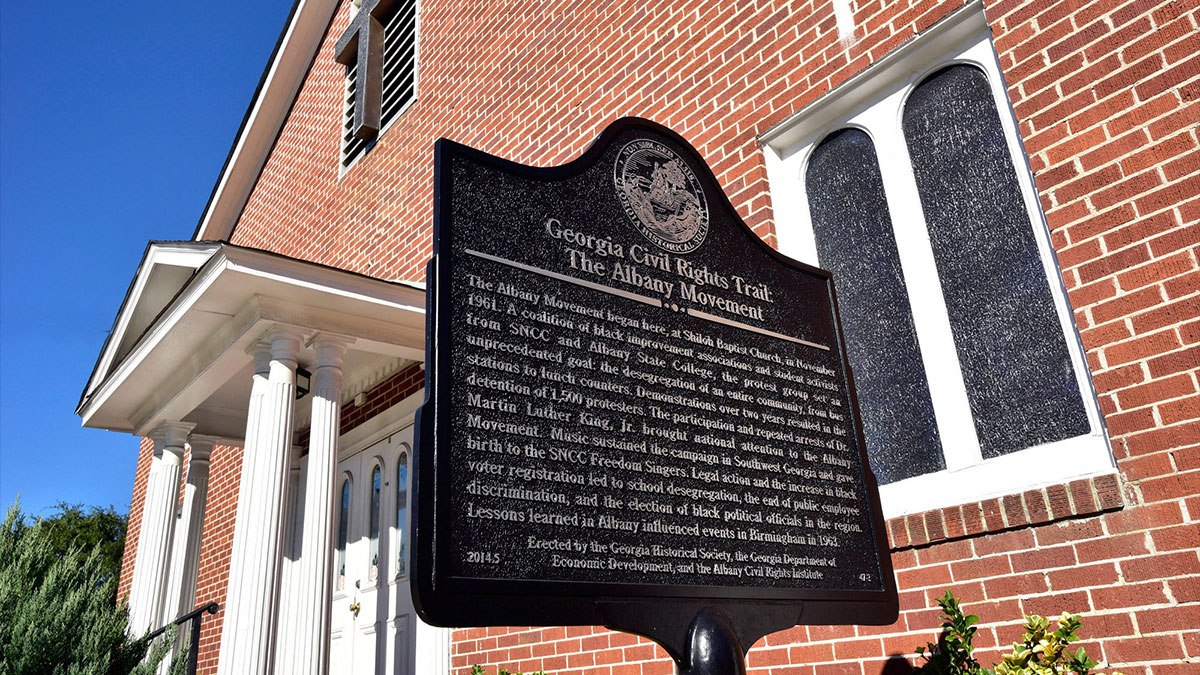
Dec. 15, 1961

Martin Luther King Jr. spoke at a mass meeting at Shiloh Baptist Church in Albany, Georgia, where the Albany Movement began. The day after King spoke, he, Ralph Abernathy and hundreds of others involved in the protest were arrested, charged with obstructing the sidewalk and parading without a permit.
Soon after King’s arrest, city officials told Albany Movement leaders that if King left, the city would desegregate buses and release protesters from jail. King left. City officials, however, failed to keep their word, and protests continued.
Six months later, King and Abernathy were found guilty of parading without a permit and ordered to either pay a $178 fine or spend 45 days in jail. They chose jail, and King explained, “We chose to serve our time because we feel so deeply about the plight of more than 700 others who have yet to be tried. … We have experienced the racist tactics of attempting to bankrupt the movement in the South through excessive bail and extended court fights. The time has now come when we must practice civil disobedience in a true sense or delay our freedom thrust for long years.”
With King behind bars, protests continued, and so did arrests. Two days after being jailed, King and Abernathy were told their bail had been paid by an unidentified Black man, and they were released. After his release, Abernathy said, “I’ve been thrown out of lots of places in my day, but never before have I been thrown out of jail.”
Setbacks in Albany helped lead to success in Birmingham. “What we learned from our mistakes in Albany,” King explained later, “helped our later campaigns in other cities to be more effective.”

